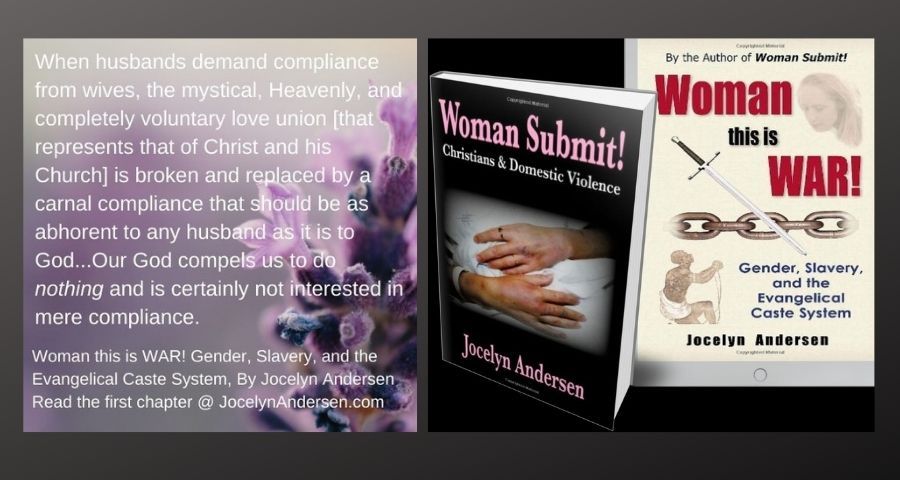Blatant mistranslations regarding women, are nothing short of outright lies in our Bible versions. As often as misogynistic translators write women out of the Bible, in places where they are clearly present [in the original languages], these same translators, place women within negative contexts in places where they are absent from the Greek and Hebrew texts.
1 Timothy 4:7 is such an instance.
Have nothing to do with godless myths and old wives’ tales --NIV
But have nothing to do with worldly fables fit only for old women --NASB
Do not waste time arguing over godless ideas and old wives’ tales --NLT
but refuse profane and old wives’ fables --ASV
and the profane and old women's fables reject --YLT
But profane and old wives' fables avoid --DBY
But refuse profane and old wives' fables --WEB
But refuse profane and old wives' fables --KJV
The
Greek word, graōdēs [Strong's G1126], frequently translated as "old wives" or "old women's" tales, occurs only once in the New Testament, and
is more likely to be incorrectly translated than not.
As we look from
one Bible version to another, the translations go from bad to worse. In the
King James Version, the word is translated as “old wives” fables. It is the same in the NIV.
The translation becomes even
more despicable in the NASB, where elderly women are so disrespected, by the
translators—not in the Greek [written by Paul]—that “old women” are portrayed
as **“fit” for worldly fables (or, as the NIV correctly calls them—"godless
myths” [“profane” fables in the KJV]).
Really? Aged women deserve to believe in (are "fit" for) profane, godless, myths?
That is
what the the NIV and NASB translations say.
Though misogynistic Bible
translators demonstrate contempt for women, it is certain, the apostle did not.
No doubt, he had many elderly women in his congregations, of whom he had
instructed believers to treat as mothers. To insult them, as gender-biased-Bible-translators
do, would not only have been repugnant to the apostle, but would also have been rebellion against God, who
commands his people to honor both mother and father and to treat all people with respect, most especially the elderly.
But such is
the prevalence of translator prejudice against women, that
the misogynistic translation of this verse survives and continues to be accepted in most of our
English Bibles to this day.
Surprisingly, the ESV, which admits to being a complementarian
(patriarchal) version, follows the lead of the RSV, and, comes close to
translating the word “graōdēs” correctly. The ESV, does not associate the word directly with women, but it does so, indirectly. Expositors
have traditionally associated graōdēs with women, hence,
both the RSV the ESV render the word as “silly.”
The word “silly” can certainly not
be applied to profane and godless myths—these are detestable and dangerous. The
word “silly,” can apply to clowns.
And, in some instances, the word can apply to playful, childish, interactions
between adults and between children and adults.
The word, silly, is never used
in regards to the actions of [or interactions between] men. But it is inappropriately, but commonly, used to describe behavior and ideas of post-adolescent girls
and adult women.
Using such words, loads the language against women and
girls, and it perpetuates gender-bias in the human psyche.
In 1 Timothy 4:7,
the word “gullible” is associated with women, but the word is not found, nor is it suggested, in the Greek Majority
Text. Never-the-less, the NET translates the word, graōdēs, as
“gullible:” "But reject those myths **fit
only for the godless and gullible ..."
There is one other place in the New
Testament where the word “silly” is a mistranslation associated with women. In
this case, also, the mistranslation is easily shown to be caused by anti-woman
bias.
Traditionally, women and men have quietly accepted misogyny coming from pulpits,
Sunday School teachers, Christian resource materials, Bible translators, and
lexicons, but passive acquiescence in that regard, is
changing.
**No one,
is “fit” for profane and godless myths.
1 Timothy 4:7 But reject
profane and graōdēs foolish
myths
and exercise yourselves rather to godliness --HHBC
Woman this is WAR! Gender Slavery
and the Evangelical Caste System examines Bible commentary and translation
practices which have historically been androcentric (male centered) and even
misogynistic (anti-woman). These have adversely effected understanding of the
scriptures, relations between women and men, the happiness of men and women,
and, in general, has hindered the work of the gospel, by forbidding women to
preach, pastor, or serve as elders or deacons. The book chronicles the early
history of the women's rights movements, as well as the role of church
leadership in aggressively suppressing both women's rights and the historical
record of Christian initiatives within the movements. Through the
complementarian movement, many of the same arguments used to support the
institution of slavery, are still used today in suppressing the rights of
Christian women. This book documents identical arguments used by Christian
leaders against both movements and is an unparalleled resource for all who
desire an in-depth study of gender equality from a Christian perspective. The
history of women’s rights is traced back [much further than usual] to the very
first feminists…who were Christians—godly women, who brought the issue
of women's rights to the forefront as they struggled to alleviate the suffering
of others, and found they were hindered in doing so for no other reason than
the fact of their sex. This work, provides valuable historical insight into
Christian initiatives in the movements for women’s rights, that are rarely
included in Christian literature. Visit this link for more information or to
buy the book: Woman this is WAR! Gender Slavery
and the Evangelical Caste System



No comments:
Post a Comment